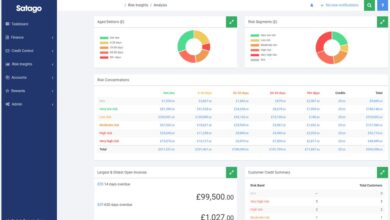Why This Fintech Stock Is Soaring

Upstart Holdings (NASDAQ:UPST) might be considered the poster child for the irrational exuberance that saw technology stocks soar in 2020 and 2021 — only to crash in late 2021 and 2022 when the bubble burst.
Shares of Upstart, which deploys artificial intelligence (AI) to process loan requests, surged to $400 per share in October 2021, less than a year after the initial public offering at around $26 a share in December 2020. Now less than four years later, the wild ride that lifted the shares from $26 to $400 before plunging them back down to a low of $12 per share has brought them right back to where they started at $26 per share.
I won’t dwell on the brief, volatile history of Upstart stock, but I will say it was popping on Thursday, surging 13% two days after the company released its first-quarter earnings report. Let’s take a look to see if this climb is a sign of momentum or just more volatility in the stock.
Streamlining operations
As with most young companies that are ramping up operations, Upstart has been saddled with high expenses. However, those expenses have been even higher due to rising inflation and soaring interest rates, which have made it more expensive to borrow and invest in growth.
Nonetheless, Upstart has made progress in streamlining operations and lowering expenses while boosting revenue. The fintech company generated $128 million in revenue in the first quarter, up 24% year over year and ahead of analysts’ estimates.
Upstart posted a net loss of $65 million in the quarter, down from a net loss of $129 million in the same quarter a year ago but worse than the $45 million net loss in the previous quarter. Further, the company recorded a net EBITDA loss of $20 million, compared to $31 million a year ago.
Despite those losses, Upstart made strides in lowering its expenses during the first quarter, trimming its operating expenses by 17% year over year to $195 million.
“There are many reasons to believe our business will return to growth soon, but we’re also prepared for the current macroeconomic conditions to persist. So, we continue to focus on improving our efficiency and financial performance while investing responsibly for the long term,” Upstart CEO and co-founder Dave Girouard said on the earnings call.
The company has done that by minimizing hiring, reducing staff, flattening organizational structures, limiting cloud infrastructure costs, and reallocating resources to high-priority areas.
“Since the beginning of 2024, we’ve cut fixed expenses from headcount by approximately $20 million on an annual basis. Our headcount today is as low as it’s been since Q3 of 2021,” Girouard said.
Ultimately, the company expects to return to EBITDA profitability by the fourth quarter of this year.
Is Upstart a buy?
Upstart’s stock price dropped some 11% after its earnings were released on Tuesday, mainly due to its second-quarter guidance. The company expects revenue of $125 million, which is down from Q1 and below the consensus estimate of $141 million. Upstart projected a net loss of $75 million, higher than Q1, while it estimated an adjusted EBITDA loss of $25 million, also higher than Q1.
One day later, Upstart stock regained all it had lost, rising some 13% back to $26 per share, and that encapsulates the volatile nature of this stock. Investors may have thought the sell-off on Wednesday was too steep, so they bought back in on Thursday.
There is a lot to like about Upstart, as its technology platform is impressive. It allows its customers — banks and financial institutions — to use its AI technology to handle loan requests in a matter of minutes. It is just a terrible market for an upstart like Upstart, as the high-interest-rate environment not only impacts its finances but has also made for a challenging loan environment.
When rates start to come down, the economy improves, and loan activity surges, Upstart should benefit and become profitable, but right now, there is just too much uncertainty to warrant a Buy rating.
Disclaimer: All investments involve risk. In no way should this article be taken as investment advice or constitute responsibility for investment gains or losses. The information in this report should not be relied upon for investment decisions. All investors must conduct their own due diligence and consult their own investment advisors in making trading decisions.



